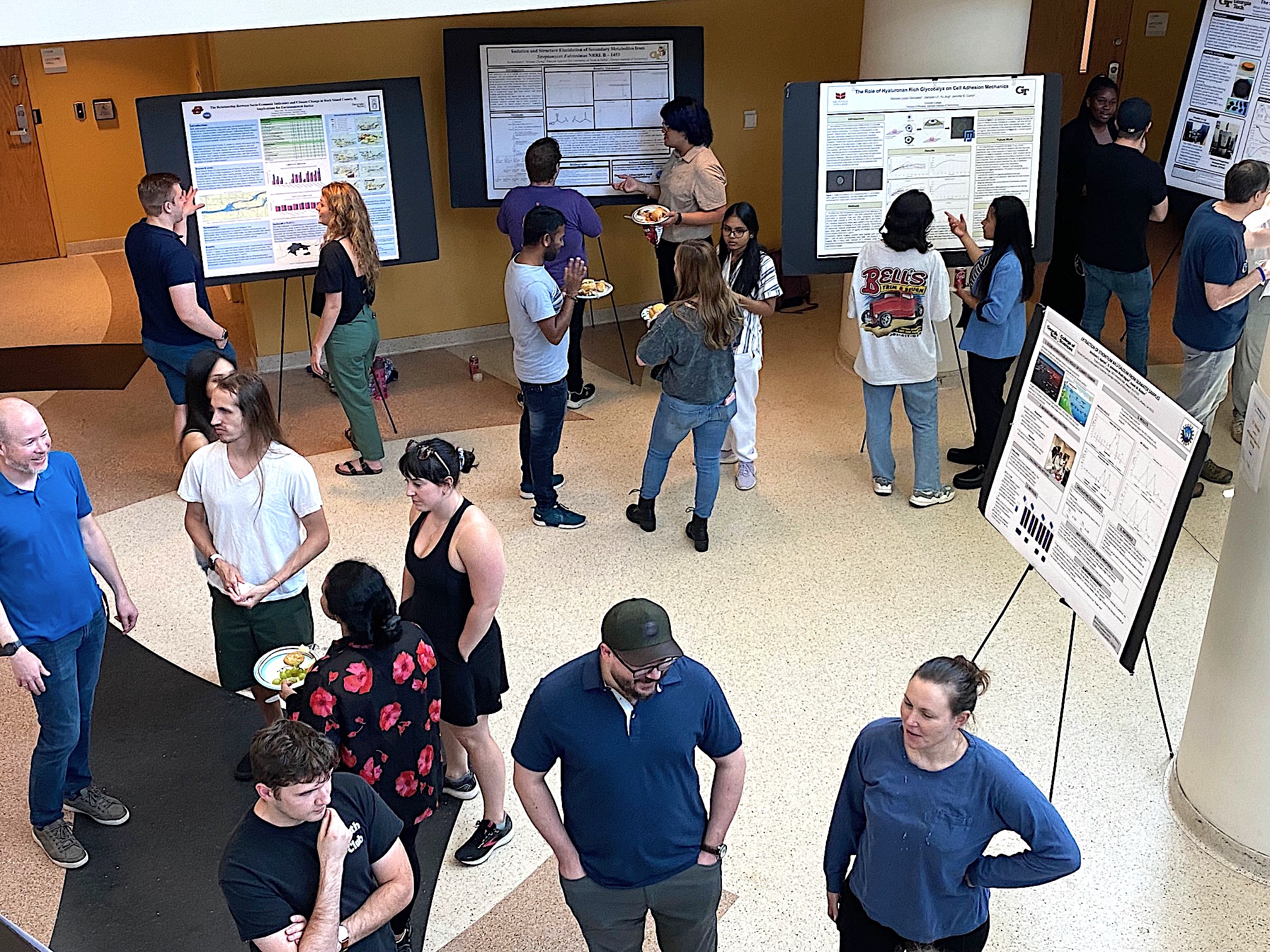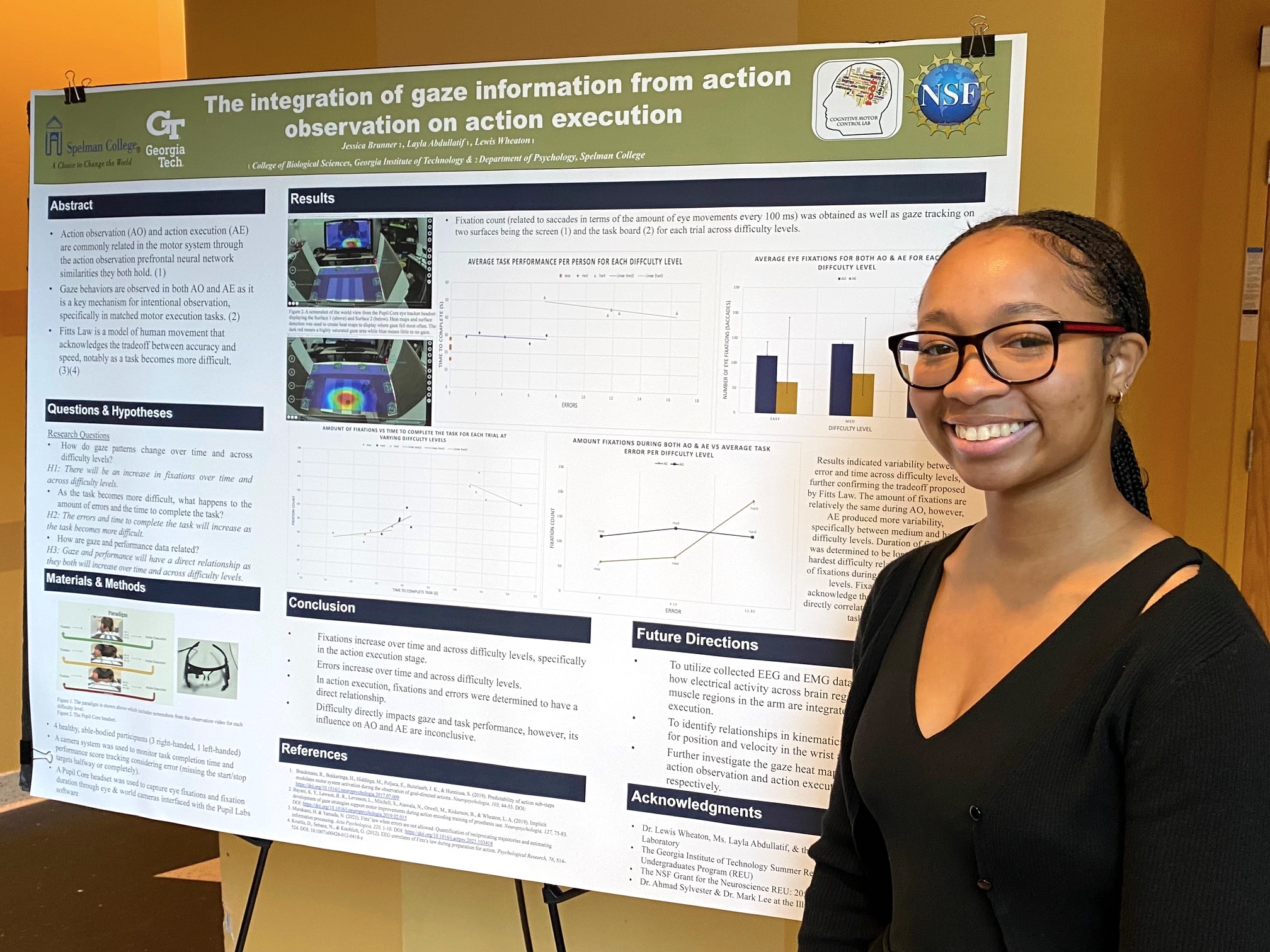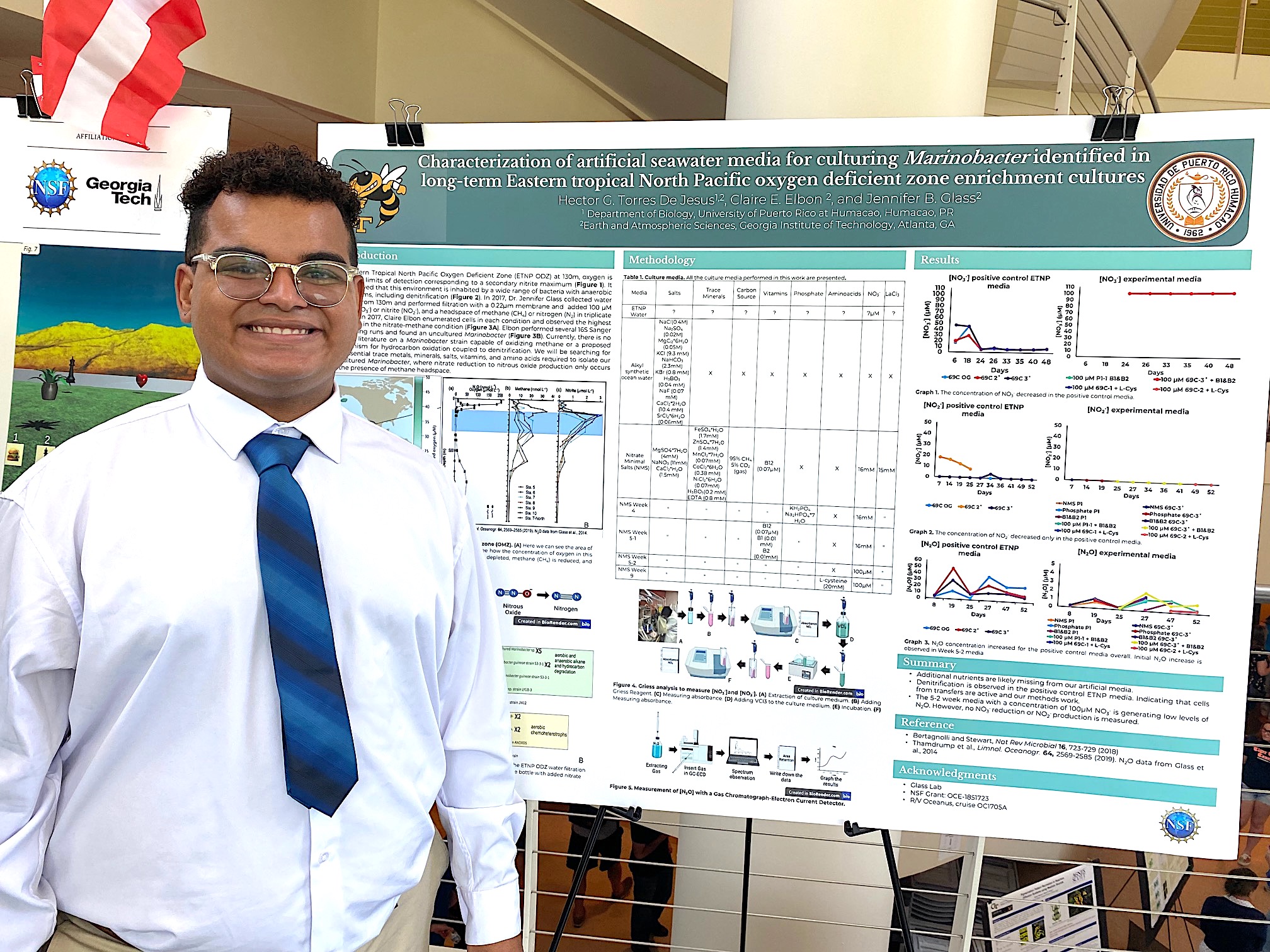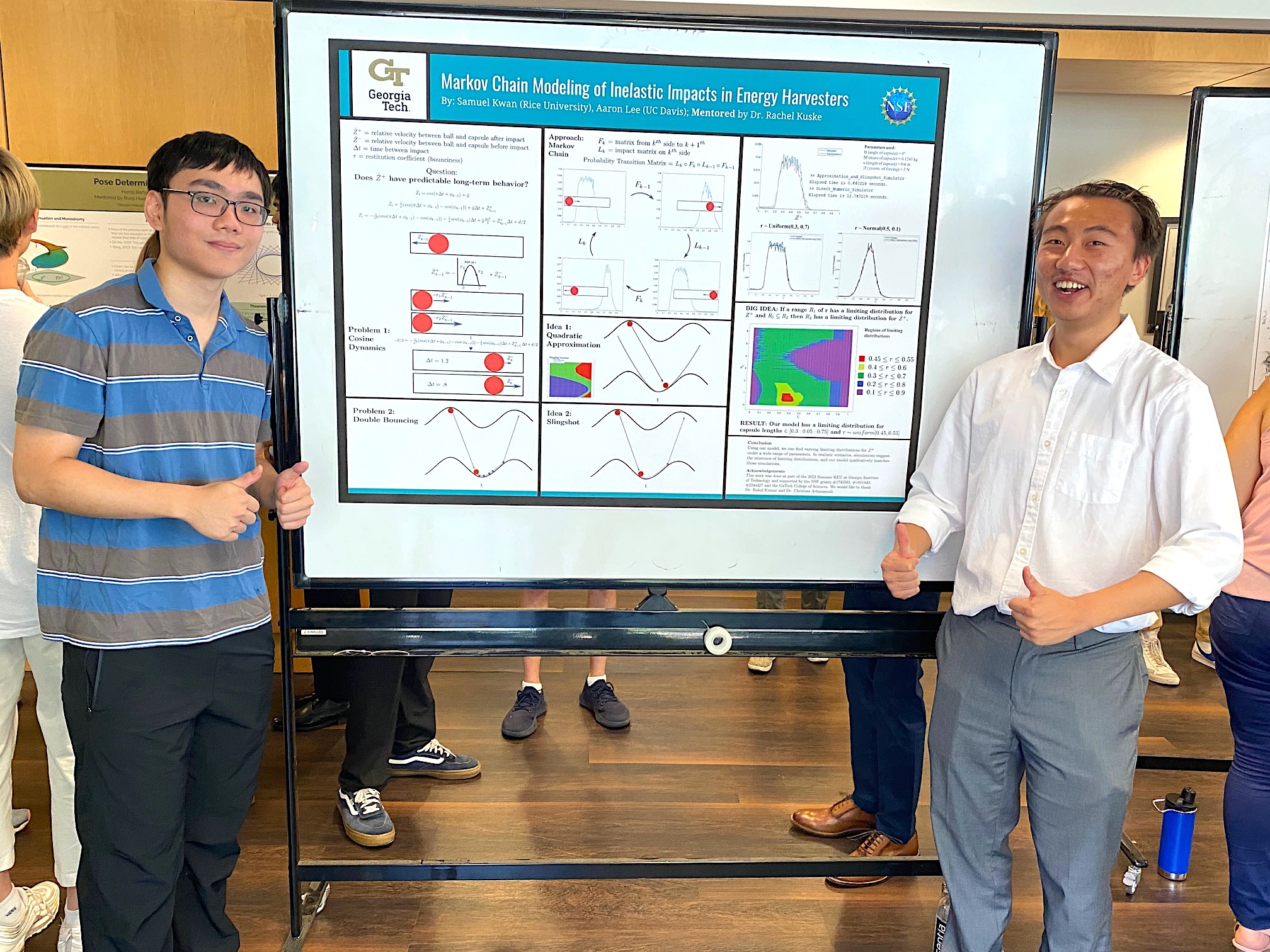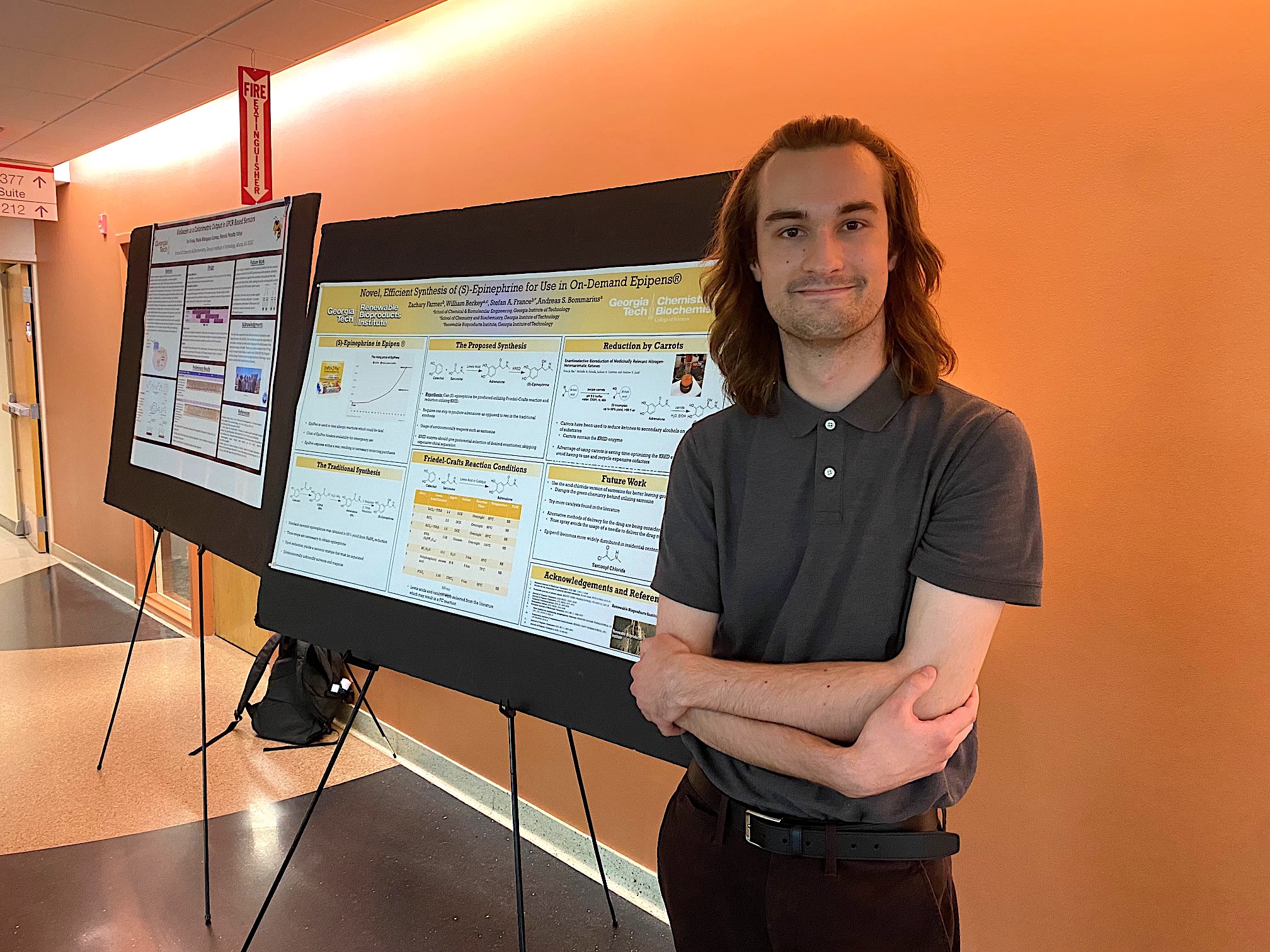- You are here:
- Home
July 27, 2023
Jessica Brunner, a rising senior at Spelman College, takes the chance to conduct undergraduate research seriously. This year, she also wanted to make new friends — and got the opportunity to do both at Georgia Tech this summer thanks to the NSF Research Experience for Undergraduates (REU) program.
“It was just a completely different experience,” Brunner said. “I was able to find a balance between research and socializing, because a lot of research is socializing. You're working with different people, you're working in different labs, or working with different areas of science. So this idea of socializing and networking, the relaying of information that different people have, it's just amazing.”
Every school in the Georgia Tech College of Sciences now offers a summer NSF REU. The Human Neuroscience Research and Techniques program that Brunner attended is led by the School of Psychology. The REU program is funded by the National Science Foundation (NSF).
“The NSF’s goal is to involve visiting students in high-quality mentored research programs with access to appropriate facilities, along with professional development and cohort building opportunities,” says David Collard, senior associate dean in the College of Sciences and a former director of REU programs in the School of Chemistry and Biochemistry for more than a decade. “They help to better inform each participant’s decision about whether to pursue graduate studies. It is a credit to our programs that a majority of their recent participants have gone on to top graduate schools, some at Georgia Tech and others elsewhere."
The NSF leverages the REU program to boost participation in science, technology, engineering, and mathematics (STEM) fields. The organization estimates that several million additional people, specifically more individuals from groups historically underrepresented in STEM fields, are needed for the country’s science and engineering workforce, to better reflect the demographics and representation of the U.S. population.
"I am delighted that each of our schools is able to contribute to NSF's vision for the development of the future STEM workforce in the U.S.," added Collard.
The College of Sciences spoke to several undergraduates who gave presentations at the REU poster sessions in July:
Emily Almgren, Mathematics REU, rising senior, Haverford College
Not many undergraduates get a chance to conduct research before they get their B.S. degree. How important is that to you?
“It's really important for figuring out whether I want to do research, whether I want to go to graduate school, and also what area of research I want to go into. it's really hard to know what kind of research you want to do without having done that research. So our views are really important for forming that decision of where to apply to grad school.”
Jessica Brunner, Psychology/Neuroscience REU, rising senior, Spelman College
What was your experience in this year’s REU?
“At first glance, it may seem daunting, but Spelman’s motto is to ‘forever remain undaunted’. So I came in with this ideology that I was going to be ready, and I was going to tackle anything that came my way, ready to do some hardcore research, and just experience what it's like to be a graduate student for a summer. This just solidified it more for me that this is definitely something that I see myself doing in the future, and I will be pursuing a Ph.D. after I graduate Spelman College.”
Marygrace Fagan, Physics REU, rising junior, Purdue University
What was your experience with the mentors you worked with in the Physics REU?
“Everyone in my lab has been super helpful. The grad students who are mentors are totally willing to help me whenever I have a question. I've learned a ton. Claire Berger (professor of the practice in the School of Physics) is my mentor, and she’s very good at explaining things. And you can tell she knows what she’s talking about. She co-wrote one of the first research papers on graphene. That’s so cool.”
Hector G. Torres De Jesus, Biological Sciences REU, rising junior, University of Puerto Rico
Why did you decide to attend this REU at Georgia Tech?
“I’m very interested in microbiology and marine biology, and the University of Puerto Rico is the only campus on the island that has marine biology as a major. We don’t have a lot of research opportunities there, so my mentor suggested an internship or undergraduate program in the U.S. because that way, you can find more marine biology courses. I read that Jennifer Glass (associate professor in the School of Earth and Atmospheric Sciences) had worked with microbiology and water microorganisms. That’s my type of research area.”
Aaron Lee, Math REU, rising senior, University of California, Davis
What brought you to Georgia Tech for an REU?
“Frankly, I was looking for things to do over the summer. And my mentor was like, 'Aaron, you should do an REU.' I applied a week before the deadline. And I thought, wow, it'd be really cool to work on this. I'm really interested in applied math. This is sort of a trial run for me — do I want to go to grad school? But personally, it's really important to me, just because I think I've always really wanted to do research, and contribute to the space of human knowledge.”
What do you hope to do for a career?
“I'm actually planning to become a teacher. And I really hope to share the enjoyment of math that I've had over the years with students. I think there are a lot of different ways to teach math. I really want to help people understand exactly why math is the way it is — and it's not just something that a bunch of old guys came up with to torture you.”
Zachary Farmer, Chemistry REU, rising junior, University of Wisconsin-Stevens Point
“It's been amazing. So far we’ve seen how work is done at the graduate level, and how graduate students organize themselves. My lab at my institution is pretty much like a teaching research lab. It’s nice to see everything sprawled out and all the researchers going hard at it. As far as networking, I think it's a fantastic idea to incorporate other students from other disciplines so you can kind of work off of what they're doing. I just think it's good exposure to other disciplines.”
College of Sciences REUs:
Aquatic Chemical Ecology Summer Research Program
(Co-hosted by the Schools of Biological Sciences, Earth and Atmospheric Sciences, Chemistry and Biochemistry, and from the College of Engineering: Civil and Environmental Engineering, Chemical and Biomolecular Engineering.)
Broadening Participation Summer Undergraduate Research Program in Physics
(Hosted by the School of Physics)
Mathematics Research Experiences for Undergraduates
(Hosted by the School of Mathematics)
Broadening Participation in Atmospheric Science, Oceanography and Geosciences Research
(Hosted by the School of Earth and Atmospheric Sciences)
Chemistry Function, Application, Structure, and Theory (FAST)
(Hosted by the School of Chemistry and Biochemistry)
Human Neuroscience Research and Techniques
(Hosted by the School of Psychology)
More information on applying for Georgia Tech summer REUs, including requirements and deadlines, can be found at the individual REU links here.
For More Information Contact
Writer: Renay San Miguel
Communications Officer II/Science Writer
College of Sciences
404-894-5209
Editor: Jess Hunt-Ralston

